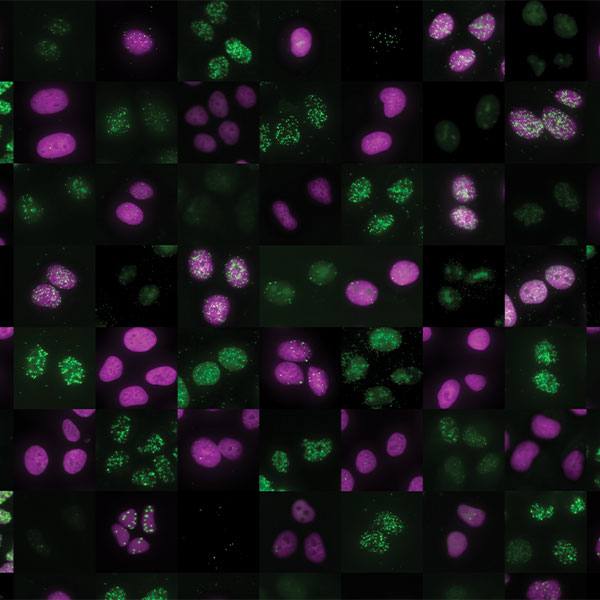-
Science Saturday: One size does not fit all in the world of probiotics
The allure of probiotics can be hard to resist. Popular belief holds that when you take probiotics in a pill, powder or food, you boost your gut health with a powerful antidote to digestive diseases.
But what exactly are probiotics, and how do you separate truth from theory? What does the research say?
Purna Kashyap, M.B.B.S., a gastroenterologist and Bernard and Edith Waterman co-director of the Mayo Clinic Center for Individualized Medicine Microbiome program and a member of the scientific advisory board of American Gastroenterological Association (AGA)Gut Microbiome Center for Education and Research, explains what science reveals about probiotics.

“Probiotics are living microscopic organisms, most commonly bacteria or yeast. Probiotics are thought to improve overall health and have been tested in multiple disease states, but the majority of the studies are not on par with rigorous clinical trials done for drugs. As a result their effectiveness remains highly controversial, and it is unclear how they act,” says Dr. Kashyap.
In addition, probiotics are naturally present in many forms of fermented foods such as yogurt, kefir, sauerkraut, kimchi, miso and kombucha.
Commonly held beliefs about probiotics
1. Probiotics will work the same in everyone
Truth: all probiotics are not created equal, so may affect each individual and each health condition differently.
Dr. Kashyap points to recent studies in human and mice on how probiotics affect the gut. The first examined how they colonize the gut – in other words how they contribute to the good bacteria that supports good health. The second explored whether probiotics restore the gut bacteria after the use of antibiotics.
“What the studies found was quite surprising. They found that people may respond differently to the same probiotic based on their diet, genetics, microbiome, environment, and lifestyle and hence one size doesn’t fit all. Further, they found that probiotics may delay the recovery of gut bacteria following antibiotic use. While they did not measure clinical effects and only studied one probiotic made of 11 different bacteria, the findings did advance our understanding of probiotics,” adds Dr. Kashyap.
A goal of the Mayo Clinic Center for Individualized Medicine is to transform medical practice by taking an individualized approach that matches medical products and services to each person’s unique genetic profile.
2. Probiotics are safe
Truth: the majority of scientific studies on probiotics do not report harm, but that does not guarantee they are safe.
“The fact that no one is reporting harm is being construed that probiotics are safe. It is not the same thing. It just means the majority of studies have not done a harm’s assessment, so we can’t say with certainty that they are safe or harmful, but they are generally considered to be safe. Further we don’t know the long term implications of probiotics, either,” Dr. Kashyap says.
“Individuals who have a chronic disease, are immunocompromised, or are elderly, should seek guidance from a medical provider on whether probiotics may be appropriate. In general, probiotics should not be taken without guidance from a medical provider.”
3. The benefit of probiotics can be measured by the combined findings from several small studies
Two large recent trials in nearly 1800 children found that commercial probiotic strains previously thought to benefit children with acute gastroenteritis were, in fact, not effective.
“Together these studies highlight the need for high quality clinical trials before we promote the use of specific probiotics in specific diseases,” says Dr. Kashyap.
“The biggest concern (about misinformation) is that people may be spending hundreds of dollars, because they have been led to believe that taking these probiotics will keep them heathy when in reality they may not make a difference, and we don’t know the long term consequences.”
What science has yet to prove about probiotics
All probiotics are not created equal, and their effects on a person’s health cannot be generalized.
“We believe probiotics may have an effect, but we don’t know specifically what that is. It is important to note that there is no U.S. Food and Drug Administration-approved use for probiotics. They are available on the market as food supplements, not as medical therapies,” says Dr. Kashyap. “Each person should discuss with a medical provider data that supports probiotic use.”
Despite lack of conclusive evidence, medical providers may recommend probiotics with the goals of:
- acting as good bacteria in the gut.
- providing health benefits such as boosting the immune system.
- preventing harmful bacteria from growing in the gut.
- producing useful by-products that improve our metabolism, our mood and the health of our colon.
To learn more ways to sift through fact or speculation, the AGA includes information on its website about probiotics and its position on recent research.
###
Join the conversation
For more information on the Mayo Clinic Center for Individualized Medicine, visit our blog, Facebook, LinkedIn or Twitter at @MayoClinicCIM.








